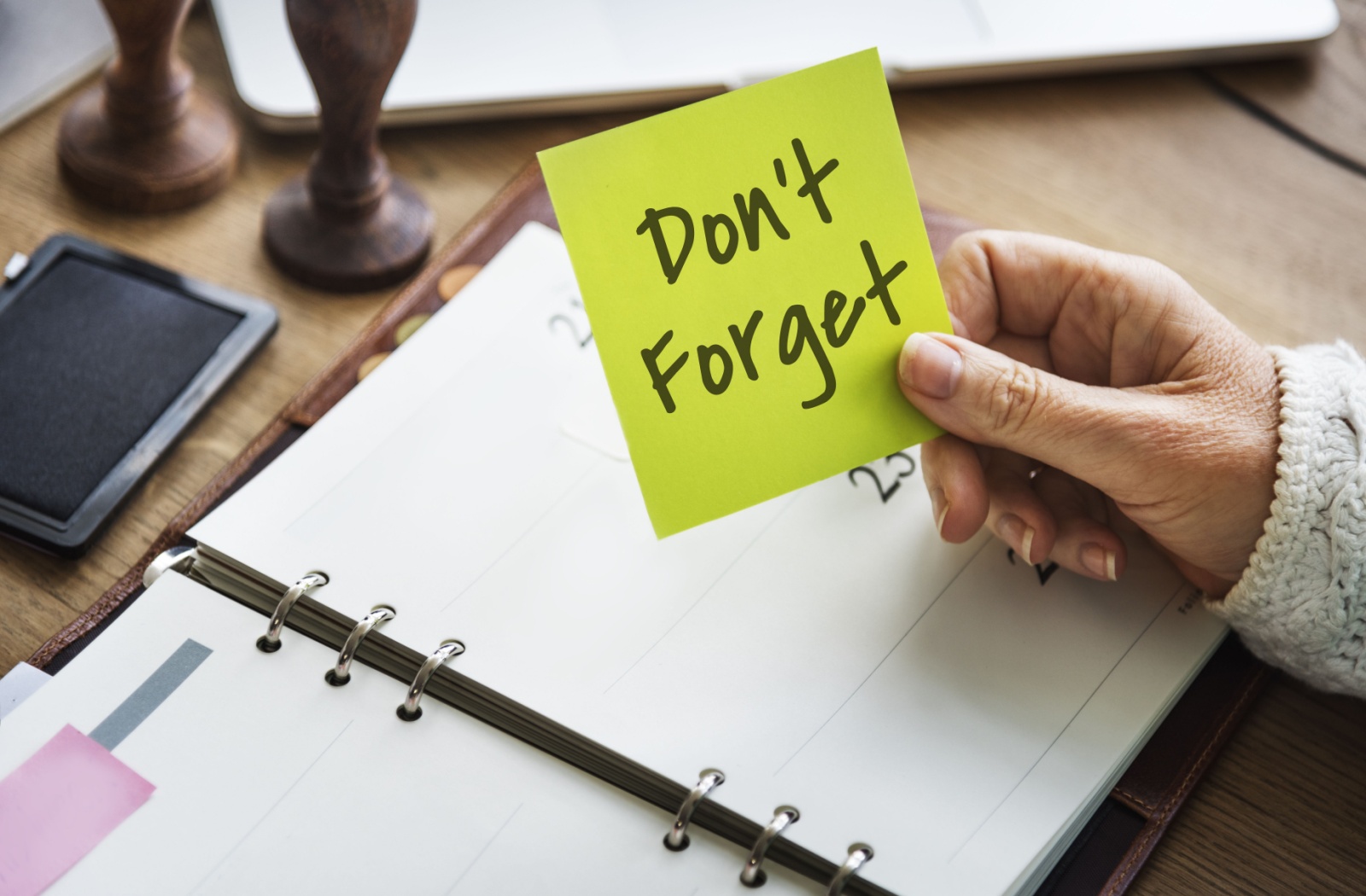As we age, it’s not uncommon to experience changes in memory. Forgetting names, misplacing items, or missing appointments can be frustrating. Fortunately, there are many practical memory aids that can support older adults in maintaining their independence, confidence, and routine.
Seniors experiencing memory challenges have a number of tools available to them for tackling these problems:
- Calendars, whiteboards, and diaries for daily planning
- Journals to document thoughts and events
- Calendar clocks for easy date and time orientation
- Shopping lists to streamline errands
- Contact lists to keep essential numbers close
- Sticky notes and permanent reminders around the home
- Medication reminder boxes for tracking daily doses
- Color-coded labels for easy organization
- Electronic tools, from smartphones to locator devices
Each of these tools can be tailored to your personal habits and preferences. The key is to find what works for you and build a simple, sustainable routine.
10 Helpful Memory Aids for Seniors
1. Calendars, Diaries, & Whiteboards
A large, easy-to-read calendar or whiteboard in a high-traffic area—such as the kitchen or hallway—can help keep daily tasks visible. Some people find a “week-to-view” diary helpful for jotting down appointments, to-do lists, or notes on what tasks they’ve already finished.
Get into the habit of checking your calendar each morning or during meals. Before going to bed, cross off the day so you know exactly where you are in the week when you wake up.
2. Keeping a Journal
A simple daily journal can serve as both a memory aid and a creative outlet. Write a few sentences about your day, your feelings, or something that happened. Paste in photos, receipts, or mementos from a walk or a visit with a friend. Over time, this becomes a meaningful way to reflect—and a useful tool to recall past events.
3. Calendar Clocks
A calendar clock is a digital device that displays the time, day of the week, and date in large, easy-to-read text. These are especially helpful for those who may wake up unsure of the day or need help keeping track of upcoming events. Some even include alarms or reminder functions.
4. Smart Shopping Lists
Forgetful while grocery shopping? Keeping a running list at home—on paper, a whiteboard, or a voice recorder—can help. Before leaving, take the list with you and cross off items as you shop. For added ease, organize your list based on your regular store’s layout.
If writing is difficult, save empty packaging or ask a loved one to assist with your list. Some apps or voice assistants on smartphones can also be used to keep a digital list on your phone.
5. Important Contact Lists
Keep a written list of vital contacts near your phone. This can include your doctor, pharmacy, care agency, family members, or friends. If you use a mobile phone, consider saving these contacts under labels like “Doctor” or adding photos to help identify them quickly.
There are also simplified phones available with one-touch dialing or picture buttons for commonly used numbers.
6. Sticky Notes & Visual Reminders
Sticky notes placed in high-visibility areas can serve as simple, powerful reminders. Put one by the kettle to remind you to take your medication, or on the door to remember your keys before going out. For more permanent reminders, use laminated signs or visual cues that won’t fall off or fade over time.
7. Medication Reminders
Pill organizers or medication reminder boxes labeled by day and time can help track doses throughout the week. Some versions include alarms to alert you when it’s time to take a pill. Others are smart devices that connect to phones or send alerts to caregivers.
If you take several medications, consider working with a pharmacist or nurse to set up a manageable routine.
8. Color Coding & Labels
Color-coded stickers or labels can be used to simplify organization. For example, blue labels on bathroom products, green for kitchen, red for urgent documents. You can also label drawers or shelves so you always know what’s inside. This technique can be especially useful for people with mild cognitive changes.
9. Embracing Technology
Don’t underestimate the power of technology. Smartphones and tablets can be equipped with apps for reminders, calendars, voice notes, and even medication tracking. Smart home assistants (like Alexa or Google Home) can respond to voice commands for reminders, news, weather, or even controlling lights.
If you tend to misplace items like keys or remotes, consider a locator device. These small tags attach to personal belongings and can be tracked through your phone or activated to make a sound when nearby.
10. Prompts & Support
Memory aids work best when paired with routine and support. Talk with your loved ones about which tools might work for you. Try focusing on one aid at a time—building confidence as you go. An occupational therapist can also help tailor solutions to your needs and make recommendations that fit your lifestyle.

Memory Care in Kingston
Finding the right memory aids is a journey, and the best ones are those that feel natural to use. With patience and a little help from those around you, memory tools can enhance your independence, help you feel more in control, and bring ease to everyday life.
If you or a loved one are looking for a supportive environment where tools like these are integrated into daily living, we invite you to visit All American Assisted Living at Kingston. Schedule a tour today and explore how our community helps residents thrive with dignity, comfort, and personalized care.





